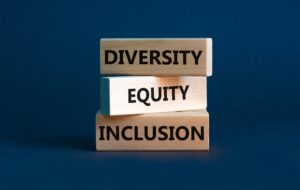D.E.I. Events: Are They Worth It?
 I read an article in the New York Times over the weekend, “Why Some Companies Are Saying ‘Diversity and Belonging’ Instead of ‘Diversity and Inclusion.” The crux of the piece is that corporate diversity and inclusion programs are evolving, and that companies of all sizes and industries are realizing what those of us who put these types of events together already know: they’re a work in progress.
I read an article in the New York Times over the weekend, “Why Some Companies Are Saying ‘Diversity and Belonging’ Instead of ‘Diversity and Inclusion.” The crux of the piece is that corporate diversity and inclusion programs are evolving, and that companies of all sizes and industries are realizing what those of us who put these types of events together already know: they’re a work in progress.
Back when I started producing corporate trivia team building events in New York City in the late 2000s, there was no such thing as D.E.I. Yes, plenty of companies large and small promoted diversity, and there was a push for gender & racial equality in the C-suites. But any type of programing geared towards promoting inclusion was informal, self-created by individual departments or committees and not officially sanctioned by the firms themselves. I hosted a few women’s nights at law firms, as well as young professional entertainment in Manhattan. But that was pretty much it.
Today things are much different. Companies have fully embraced the notion of diversity, equality and inclusion. There are celebratory days, weeks and months for just about every cultural and minority group, and I am often approached by people whose official company role – part time, or event full-time – is that of managing D.E.I. programming.
Over the past year alone, I’ve been asked to create multiple in-person and virtual trivia events for corporate groups celebrating Pride Month, AAPI Heritage Month, Hispanic Heritage Month, Black History Month, Women’s History Month and much more. This NEVER happened previously. I of course adapted accordingly, generating all-new material as needed, and the professional emcees I work with couldn’t have been happier to help promote diversity and inclusion in the workplace. Earlier this year, we even announced a new offering of 25+ corporate trivia themes our clients can choose from, covering a variety of diversity-inspired themes.
The response from clients has been fantastic: attendees are engaged, the organizer feels great and everyone seems to have had an enjoyable shared experience. I receive nothing but praise afterwards.
But the question remains: do these programs work?
Are D.E.I. events effective at doing what they’re supposed to do – that is, promote inclusivity and acceptance in the workplace? And should companies be devoting so much time and resource to this area, anyway?
I would argue that yes, the types of events do work, and are indeed helpful in boosting not only a more inclusive and accepting office environment, but the bottom line as well. So-called “soft skills” have never been more important to the workplace, yet as we’ve seen over the past few years with the rise of remote work, the art of interpersonal engagement has atrophied tremendously.
The drive to make offices more inclusive isn’t just touchy-feely stuff to help corporations appear like they’re adapting with the times. Studies have shown than the more comfortable people are working together, the more efficient, collaborative and productive they will be. When implemented properly, D.E.I. programs can most certainly be effective at making employees and manages more comfortable with each other, thus helping to foster a healthier work environment. This means better products/service, happier clients, and more revenue.
And who could argue with that?